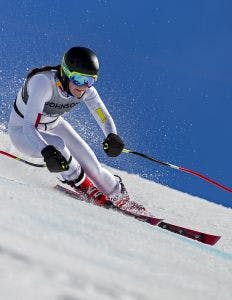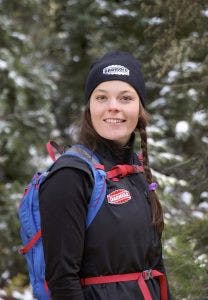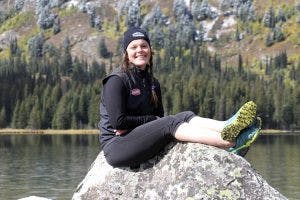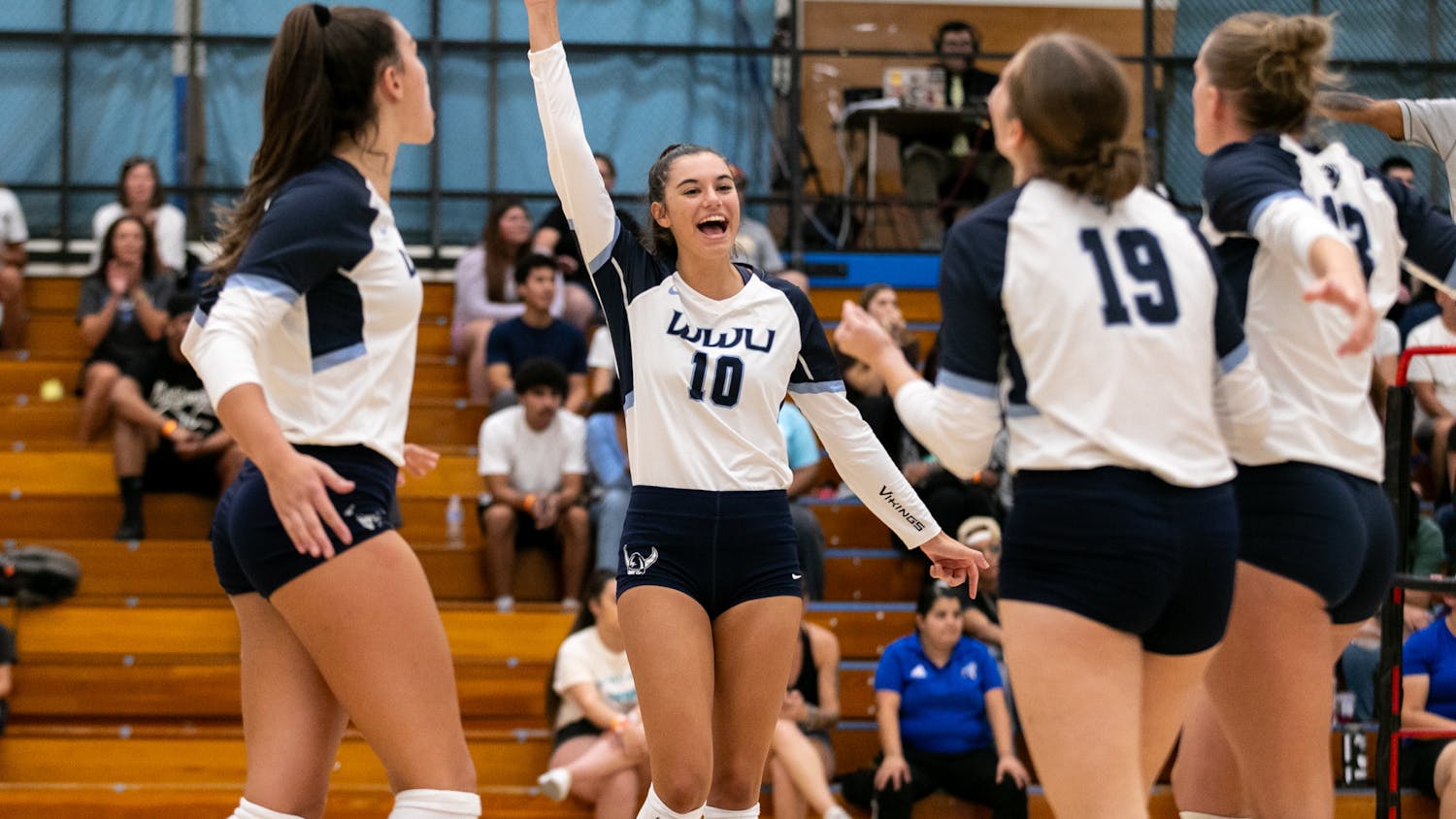Have you ever imagined what it’s like to speed down a mountain at speeds up to 85 mph?
For sophomore Breezy Johnson, a 2018 Olympic ski racing hopeful, it feels a lot like cliff-jumping.
“You have that part in your mind that's like, 'don't jump, you're going to die,'” Johnson said. “And then you do it anyway.”
Johnson has chased that feeling from the driveway of her home in Victor, Idaho, to Park City, Utah, where she currently trains as a member of the U.S. Ski Team.

After a monumental 2016-17 turnout, Johnson was promoted to the U.S. ‘A’ Team this year. In her second World Cup season, Johnson continued to set career-bests as the youngest of 23 Americans at 21 years old. She finished 18th in downhill standings and 36th in super-G, according to the U.S. Ski Team website.
Racing at the level she does, among greats like Lindsey Vonn and Mikaela Shiffrin, is a full-time job. Months of training are put to the test when the race begins.
“You just spend two minutes fully, both mentally and physically, involved in your sport,” Johnson said. “There are many great physical sports, there are many great mental sports, but ski racing is truly 100 percent firing with both your brain and your body. Just physically moving at those speeds is very difficult.”
Among the difficulties for downhill skiers is the potential for injury. A tibial plateau fracture sustained in a huge fall last March at the 2017 World Cup Finals set her back.
“The part where I did the splits wasn't too bad, but then I do a cartwheel and basically hyperextended my knee,” Johnson said. “My femur and my tibia got in a fight and my femur won.”

Johnson has stayed positive during the recovery period. It was returning to Western that was challenging.
Johnson’s situation at Western is different from the average student. Due to intense training and long competition seasons, Johnson is only able to attend Western during spring quarter, she said.
“The struggle is that it’s going to take me a long time to graduate, which is tough and slow,” Johnson said. “But at the same time, I'm glad I'm doing something.”
Johnson said the professors at Western have been very accommodating during periods when she has to leave for additional training. She wants to pursue a degree in English and is part of the Honors Program.
Honors Director Scott Linneman said many of Johnson’s teammates go to Dartmouth University because the school caters to their schedules. Johnson, however, chose a place closer to home.
“She’s a really upbeat person,” Linneman said. “I think it’s cool she wants to be in Bellingham. She’s not here to ski, she’s here to learn. We are going to accommodate her.”
Johnson said she chose Western for its size, location, affordability and overall vibe. When she’s on campus, students can find Johnson working out in the Wade King Student Recreation Center or working on assignments in the honors lounge in College Hall, Linneman said.
When spring quarter ends, Johnson goes right back to training. She admits her life is largely a juggling act, but an exciting one.

Johnson’s ski technician Ales Sopionik can attest to Johnson’s busy lifestyle. His role is to help Breezy prepare her equipment and decide which skis to use on race day.
“The seasons are long, they require a lot of travel across the globe, putting athletes in a number of time zones,” Sopionik said in an email. “But [Johnson] is focused and is willing to learn every day, looking for opportunities to get more experience or improve her nutrition, recovery or training regimen.”
After missing a few months of training in recovery, Johnson was back at it and is still pushing for one of the four spots open to U.S. women downhill skiers in the 2018 Pyeongchang Olympics.
Unlike sports such as gymnastics or track and field, ski racing doesn’t have an Olympic trial, Johnson explained. Instead, athletes are chosen based on their overall results over the World Cup season. The top four women are chosen to represent America. At the end of last season, Johnson ranked sixth among American women in downhill, according to the International Ski Federation.
The first Olympic qualifier for Johnson is Dec. 1 in Beaver Creek, Colorado.
“The Olympics is a huge deal for us, and it's the biggest singular race that happens for anybody in the sport,” Johnson said. “[The American women] are really excited.”
To get to the Olympics, Johnson will be competing against Olympic gold-medalist Lindsey Vonn, Mikaela Shiffrin and returner Julia Mancuso, along with five skiers who ranked higher than Johnson in the last World Cup season.
Johnson is taking the journey step-by-step.
“I just focus on what I need to do [and] what I need to do to accomplish that,” she said. “I know if I can accomplish all the pieces, getting the result is no problem.”
Johnson is training two times a day in Park City, Utah this fall. After a long summer of physical training, she has spent much of this fall traveling around the world with the U.S. Ski Team. Johnson said the group recently travelled to Chile for training.
Johnson said traveling with her teammates and having a purpose wherever she goes is her favorite part about being on the team.
“I don't come from a super affluent family,” she said. “So to be able to go to New Zealand, Chile and experience Korea and all these different places has been one of the things I'm most excited about.”
When Johnson is not occupied with school or skiing, she enjoys making her own pasta, slacklining and adventuring outdoors, she said. Her coaches and professors comment on both her intelligence and community-oriented personality.
“She is so dedicated to the sport,” Sopionik said. “When we hear race times come in over the radio, even when it’s a lot of athletes, [Johnson] can keep track of all the names and numbers like a human calculator. She is always looking for ways to improve and is a team player, willing to help in any way she can.”
Linneman looks forward to her arrival every spring quarter. When she’s skiing, he and Honors Program administrative assistant Carla Pederson check her stats and location often.
“You’ve got to respect it, it’s a dream. And it takes an absolute commitment to be able to do this. If we can support her to do this and a little bit of college along the way, that’s what we are going to do,” Linneman said.





